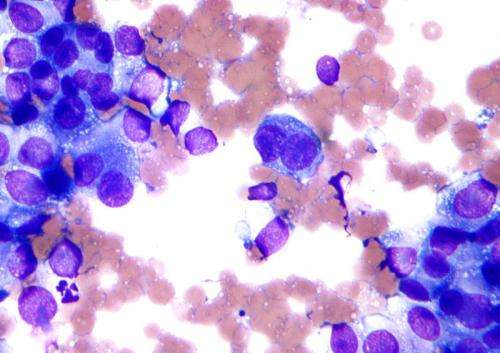Home » Health News »
Null result in nicotinamide (vitamin B3) skin cancer trial of organ-transplant recipients

A one-year, placebo-controlled trial of oral nicotinamide (vitamin B3) therapy by the University of Sydney did not lead to lower rates of skin cancer in organ transplant recipients. The result is in striking contrast to a previous trial in which oral nicotinamide was concluded to be effective in reducing the rates of new nonmelanoma skin cancers and actinic keratoses in high-risk patients.
In the previous trial, “A Phase 3 Randomized Trial of Nicotinamide for Skin-Cancer Chemoprevention,” participants were ineligible if they were immunosuppressed. Results showed an estimated 23% lower overall rate of new nonmelanoma skin cancers, with similar reductions of both new basal-cell and squamous-cell carcinomas. Interestingly, the previous trial found five rare, more aggressive carcinomas (two morphoeic, three poorly differentiated) in the nicotinamide group, while the placebo control had zero.
Transplant recipients are commonly given immunosuppressant drugs to prevent the body’s immune system from attacking the new organ tissues. These patients are approximately 100 times more likely than the general public to develop squamous cell carcinoma, according to a Swedish study. A higher risk of developing skin cancer combined with lower survival rates means transplant patients urgently need a safe and effective way to lessen the risk.
In the current study, 158 organ transplant recipients were enrolled, with 79 assigned to the nicotinamide group and 79 to the placebo group. They received 500 mg of nicotinamide or a placebo twice daily for 12 months. At the end of the trial, there were 207 new keratinocyte cancers in the nicotinamide group and 210 in the placebo group. No significant differences in squamous-cell and basal-cell carcinoma counts, actinic keratosis counts, or quality-of-life scores were observed.
The study is published in The New England Journal of Medicine.
Null results like this are extremely useful to scientists when comparing correlative studies as they raise new questions and hint at unknown interactions. Follow-up studies could look for the hidden mechanism causing the different outcomes or investigate nicotinamide in non-drug-induced immunosuppressed individuals. As often is the case at the end of any good study, more research is needed.
More information:
Nicholas C. Allen et al, Nicotinamide for Skin-Cancer Chemoprevention in Transplant Recipients, New England Journal of Medicine (2023). DOI: 10.1056/NEJMoa2203086
Editorial: David M. Miller et al, Skin-Cancer Chemoprevention in Transplant Recipients, New England Journal of Medicine (2023). DOI: 10.1056/NEJMe2214930
Journal information:
New England Journal of Medicine
Source: Read Full Article


